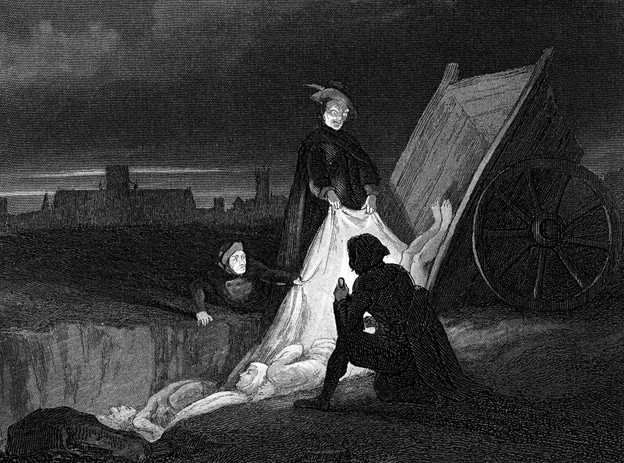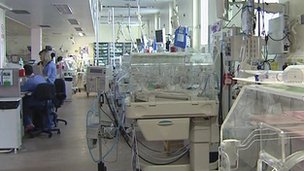Sink taps were the source of an infection which killed three babies at a Belfast hospital, the Northern Ireland health minister has confirmed. Edwin Poots told the NI Assembly that the Pseudomonas bacteria had been traced to taps at a neo-natal unit in the Royal Jubilee Maternity Hospital. The un... Read more...

Scientists have used DNA lurking inside the teeth of medieval Black Death victims to figure out the entire genetic code of the deadly bacterium that swept across Europe more than 600 years ago, killing an estimated half of the population. The researchers didn't find any genetic feature th... Read more...
In 1919 when the flu killed 40 million people there was this Doctor that visited the many farmers to see if he could help them combat the flu. Many of the farmers and their family had contracted it and many died. The doctor came upon this one farmer and to his surprise, everyone was very healthy.... Read more...

The CDC estimates that roughly 1 in 6 Americans will get sick from food-borne illnesses each year. E. coli outbreaks continue to be a public health problem, both in the States and abroad, especially since our food supply has gone global and we're able to have fresh produce year-round by importing fr... Read more...
I got this email from a colleague the Tuesday after Memorial Day: “Can’t come in today. Stomach bug.” I’m no detective but—with barbeque season officially starting the day before—a prime suspect immediately jumped to mind: the norovirus, the most common cause of food poisoning in the ... Read more...
It's being called the "poop burger". Japanese scientists have found a way to create artificial meat from sewage containing human feces. Somehow this feels like a Vonnegut plotline: population boom equals food shortage. Solution? Synthesize food from human waste matter. Absurd yes, but Japanes... Read more...

As the swollen Mississippi River rolls south, many residents living along the "Big Muddy" are scrambling to get out of its path. If the Army Corps of Engineers opens up the Morganza spillway in an attempt to save New Orleans and Baton Rouge, it will flood a 3 million acre flood plain and displace ... Read more...
A scientist has discovered 34,000-year-old bacteria buried underneath a Californian desert. The discovery was made after researchers dug up salt crystals below Death Valley in Eastern California for climate research. Ancient microbes were found trapped inside tiny, fluid-filled chambers with... Read more...

Research has shown that bacteria - among the simplest life forms on Earth - have a sense of smell. Scientists from Newcastle University in the UK have demonstrated that a bacterium commonly found in soil can sniff and react to ammonia in the air. It was previously thought that this "olfaction"... Read more...


